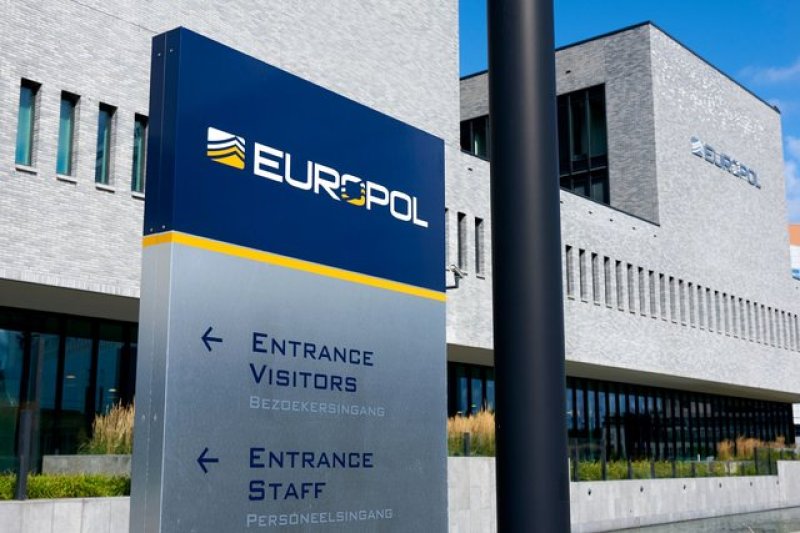Europol-coordinated Operation Tackles the Threat of terrorist-operated Websites
Europol is announcing the results of a year-long investigation into terrorist-operated websites, which culminated in a targeted referral action this week to take them down.
Ten countries joined forces with Europol to disrupt the online propaganda activities of religious and politically motivated terrorist organisations across the ideological spectrum.
This joint effort, known as Operation HOPPER II, targeted key assets in the online dissemination of terrorist propaganda, including those of the so-called Islamic State, al-Qaeda and its affiliates, and Hay’at Tahrir al-Sham. The operation specifically targeted terrorist-operated websites used to disseminate terrorist propaganda, thereby limiting the ability of terrorist organisations to recruit, radicalise and mobilise recruiters online.
This week, Europol referred a total of 13 websites spreading terrorist propaganda to hosting service providers for removal. This follows the seizure of four servers in Romania, Ukraine and Iceland over the course of the investigation and the removal of associated websites.
The referral of websites operated by terrorists, violent extremists and their supporters will continue as new copycat domains are likely to emerge.
This operation was coordinated by the European Union Internet Referral Unit (EU IRU) within Europol’s European Counter Terrorism Centre. It involved law enforcement authorities from Albania, Bosnia and Herzegovina, Denmark, Germany, Iceland, Moldova, Romania, the Slovak Republic, Ukraine and the United Kingdom.
Operation HOPPER II ran in parallel with the Spanish Guardia Civil’s Operation ALMUASASA, also supported by Europol, with the aim of intensifying the disruption across the terrorist ideological spectrum.
Responding to the threat of terrorist-operated websites
This operation is a crucial part of the EU IRU’s ongoing work against websites operated by terrorists and violent extremists, which serve as key platforms for the dissemination of violent ideologies.
These websites enable terrorist organisations and violent extremists to bypass the enhanced moderation and content removal efforts of mainstream online service providers, allowing them to maintain a persistent online presence.
They are used not only to spread propaganda and incite violence, but also to recruit members, raise funds and coordinate attacks. The content hosted on these websites often includes manuals for creating explosives and propaganda designed to radicalise and mobilise individuals.
Identifying, flagging, investigating and disrupting these websites has become a key function of the EU IRU through the technical solution Europol developed in-house – the EU Platform on illicit content online (PERCI).
A single system to facilitate referrals and removal orders
At the request of the European Commission, Europol has developed a technical solution that facilitates the implementation of the Terrorist Content Online Regulation (TCO Regulation - (EU) 2021/784) by EU Member States.
The TCO Regulation, which came into effect from June 2022, provides a legal framework to ensure that hosting service providers are obliged to remove terrorist content within one hour of receiving a removal order from Member State authorities. The Regulation applies to all hosting service providers offering services within the EU, including providers of social media, video, image and audio-sharing services.
Europol provides a single system that connects all EU Member States with hosting service providers. Known as PERCI, this platform is managed by the EU IRU and is used to issue and transmit removal orders.
In the framework of HOPPER II, PERCI played a pivotal role in centralising and coordinating the transmission of referrals to hosting service providers, thus enabling the alignment of investigative priorities.
The following authorities took part in HOPPER II:
- Albania: State Police (Policia e Shtetit)
- Bosnia and Herzegovina: State Agency for Investigation and Protection (Državna agencija za istrage i zaštitu), Ministry of Internal Affairs of the Republic of Srpska (Ministarstvo unutrašnjih poslova Republika Srpska)
- Denmark: Danish Security and Intelligence Service (Politiets Efterretningstjeneste)
- Germany: Federal Criminal Police Office (Bundeskriminalamt)
- Iceland: National Commissioner of the Icelandic Police and Reykjavik Metropolitan Police
- Moldova: National Inspectorate of Investigations and Moldovan Informational Security Service
- Romania: Romanian Police (Poli?ia Român?), Romanian Intelligence Service (Serviciul Roman de Informatii)
- Slovak Republic: Counter Terrorism Unit
- Ukraine: Security Service of Ukraine (?????? ??????? ???????)
- United Kingdom: Counter Terrorism Policing













